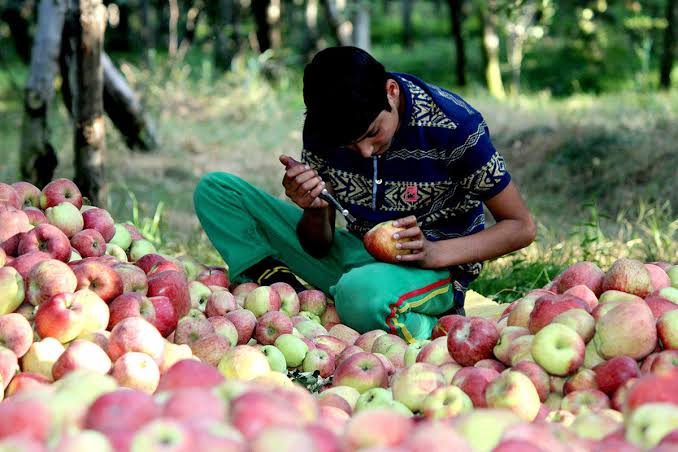AIKS urges govt to protect interests of IIOJK apple farmers

Srinagar,: The All India Kisan Sabha (AIKS) has urged the government to take immediate steps to safeguard the interests of apple farmers in Jammu and Kashmir.
According to Kashmir Media Service, the AIKS held a convention in Tukroo village of Shopian district of Indian illegally occupied Jammu and Kashmir (IIOJK), organized by the Kashmir Chapter of AIKS. The convention witnessed a large turnout of concerned farmers.
Rajan Kshirsagar, President of AIKS, addressed the gathering, describing the apple industry as the backbone of Jammu and Kashmir’s economy. He emphasized the need for government investment in research and development in this vital sector.
“I have come to show solidarity with the apple farmers of Jammu and Kashmir,” Kshirsagar said, adding that the convention’s purpose is to raise the genuine demands of local farmers.
Kshirsagar revealed that more than 500,000 tones of apples are imported into the country, a 70% increase that significantly impacts local apple growers.
To protect their interests, he demanded a 300% import duty on foreign apples. “The AIKS will oppose this import to safeguard the interests of local apple growers,” he said.
Kshirsagar called for the central government to announce a Minimum Support Price (MSP) for apples, ensuring local farmers benefit. He suggested adopting a model similar to that of Kerala’s vegetable and fruit farmers. “All India Kisan Sabha will strive to secure an MSP for apples,” he said.
It was informed that despite over 300,000 hectares of land dedicated to orchards and a considerable increase in apple production, including high-quality Italian varieties; growers are facing severe financial losses.
They said that rising production costs, market exploitation, and inadequate government support are key issues which need to be addressed.








